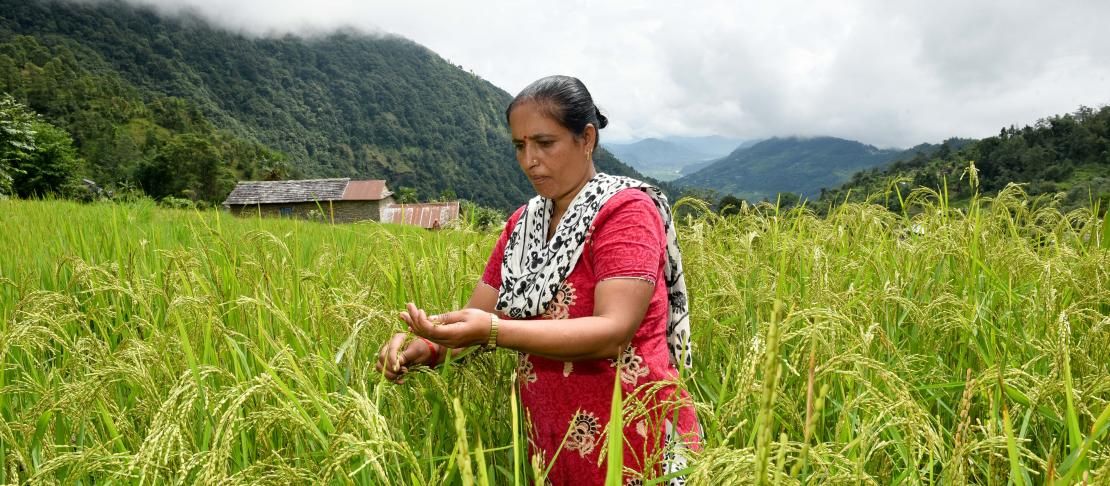ICT based agro-advisory services in Climate-Smart Villages in Nepal

Farmers in Climate-Smart Villages in Nepal receive climate information and agro-advisory services in their mobile phones.
Climate information services can be an important tool in helping farmers adapt to the impacts of climate variability and change. Delivery of vital weather and market information directly to smallholder farmers enables them to make on-farm decisions against adverse climatic conditions and reduce losses due to negative impact of climate change by linking scientific and extension expert knowledge to rural farmers.
CCAFS in Nepal, in partnership with the Local Initiatives for Biodiversity, Research and Development (LI-BIRD) has collaborated with SMILES, an ICT provider to offer mobile and web based agro advisory services in Dang and Nawalparasi districts. Farmers who have subscribed for the services receive messages for market price of vegetables twice a week, and for weather-related information three times a week, through a push system. They are also trained to access detailed information on market price through a pull system. Group discussions with farmers revealed greater usefulness of market related information compared to climate.
One local farmer in the Climate-Smart Village (CSV) said:
Weekly rainfall information is helping during crop harvesting time. I can postpone or prepone crop harvesting based on rainfall information to avoid postharvest losses.”
This ICT services in the selected CSVs, initiated in March 2016, have a total subscription of 87 farmers (39% female) in two districts. There appears to be a growing demand to use these services, with many farmers expressing their interest and willingness to pay for it.
In an international workshop organised in 12-14 September 2016 by the Ministry of Agricultural Development (MoAD), Nepal, along with Local Initiatives for Biodiversity, Research and Development (LI-BIRD) and CGIAR Research Program on Climate Change, Agriculture and Food Security (CCAFS) South Asia program, the Government of Nepal also highlighted the significance of ICT based agro-advisory services. In this framework, Department of Hydrology and Meteorology (DHM), Nepal Agriculture Research Council (NARC) are closely working with Ministry of Agricultural Development (MoAD) to deliver ICT based information services and agro-advisories in Nepal. Some government services include KISAN-Call Centers, Weekly Agro-advisory bulletins, Mobile Apps & important alert SMSs.
CSV approach of climate change adaptation in farm communities in Nepal is aiming to make linkage of farmers to the government’s ICT services.
